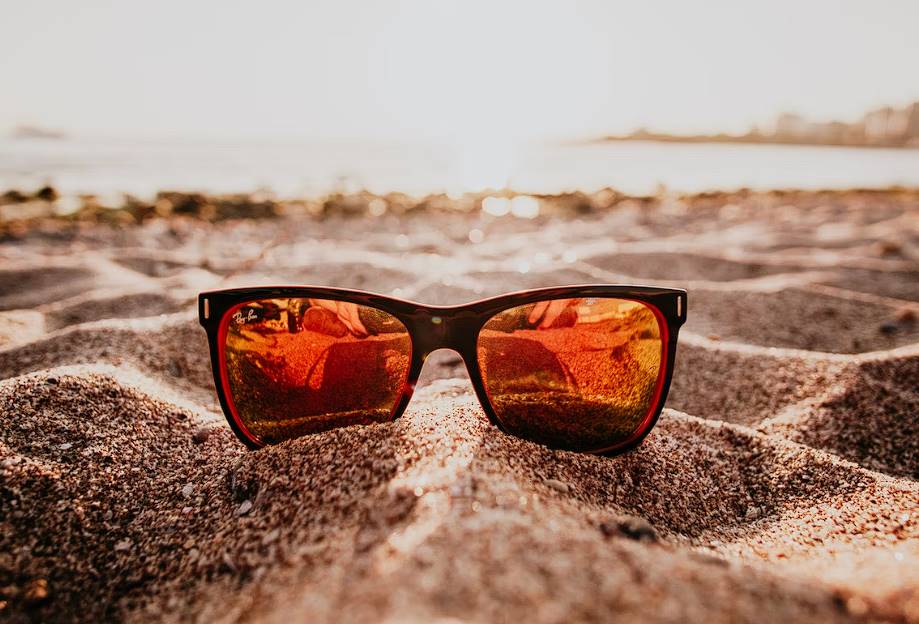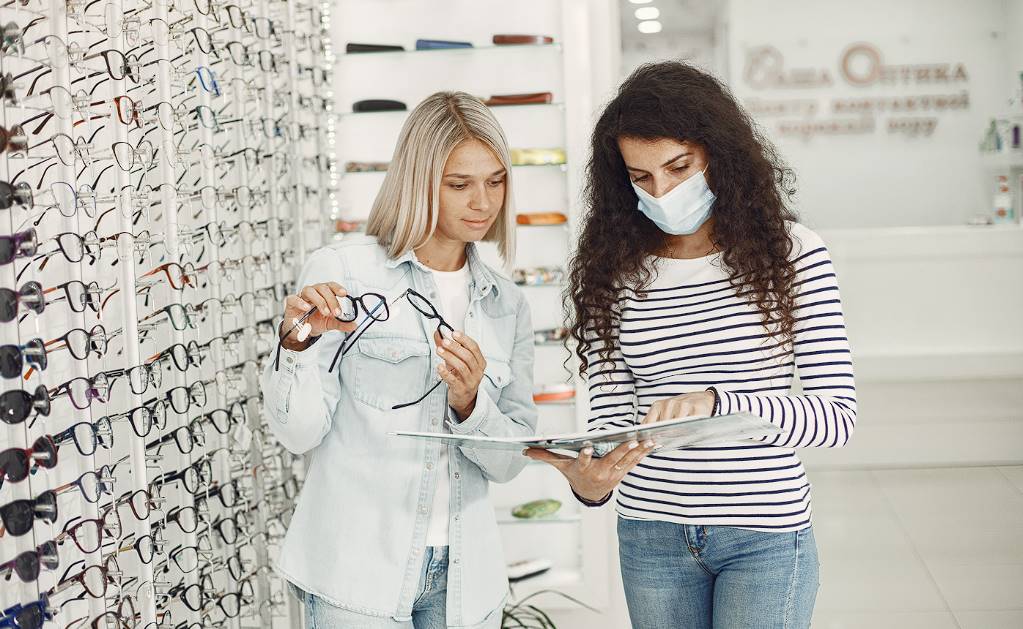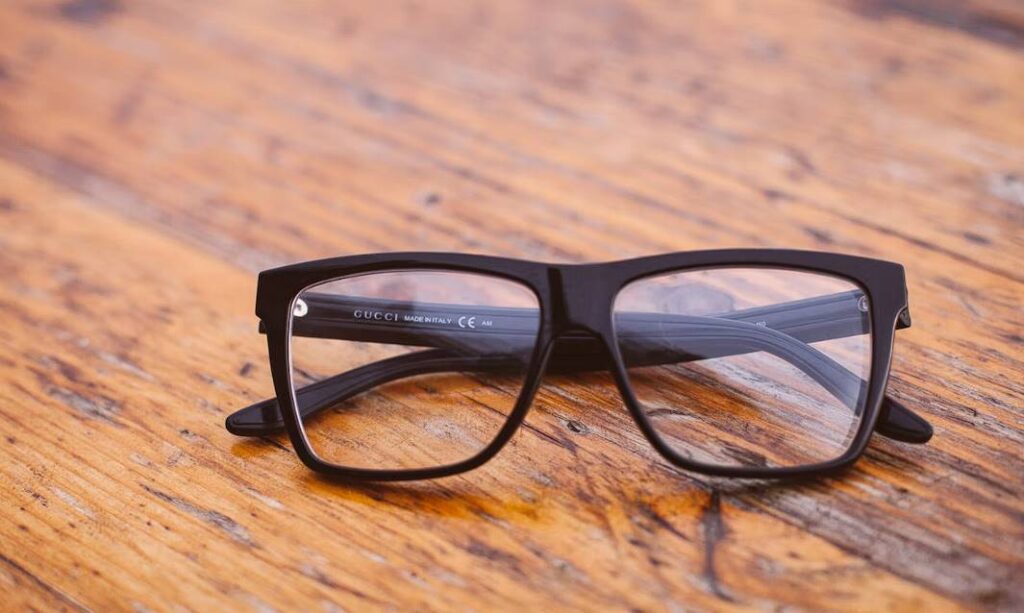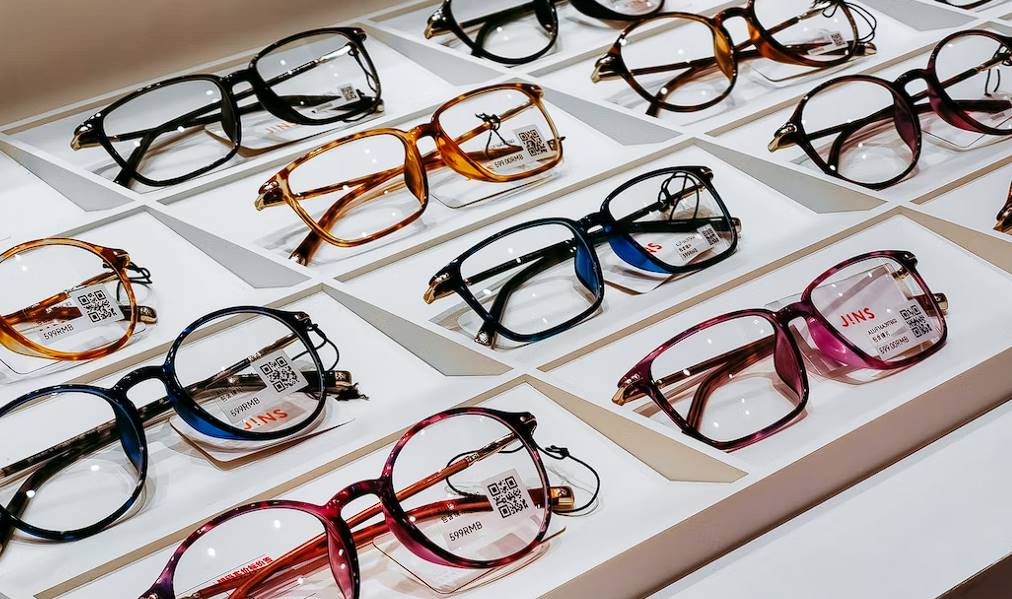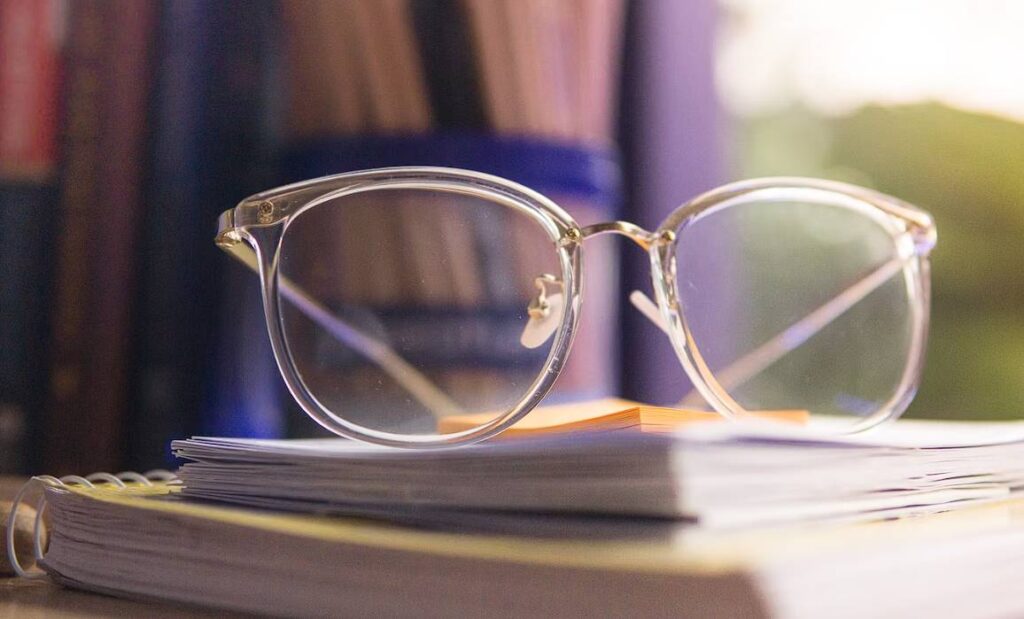Sunglasses are a must-have summer accessory. When you were a kid, your parents probably made you wear them whenever you went outside to play. Then, once you reach puberty, they become an essential piece of your wardrobe. It's natural for an adult like yourself to wonder what the benefits of wearing sunglasses are.
Wearing sunglasses every day of the year (rain or shine) has many advantages. The sun's harmful ultraviolet rays penetrate our atmosphere every day, so it's important to wear eye protection at all times.
In this article, we will explore the importance of sunglasses in detail, discussing the benefits they provide beyond style.
What Makes Sunglasses So Important?
Sunglasses are important when you think about your eye health, which is why those are good reasons to wear them but only some of the important ones.
Everyone is well aware of the consequences of spending a day in the sun without first applying sunblock. Did you know your eyes are just as susceptible to sunburn as your skin? Keeping your eyes safe from the sun's UV rays is a top priority.
A lifetime of excessive exposure to ultraviolet (UV) rays can put your eyes at risk for a variety of potentially debilitating diseases, many of which are incurable.
What Is UV?
Ultraviolet (UV) light is a spectrum of the electromagnetic spectrum emitted by the sun. The sun's ultraviolet (UV) rays arrive on Earth at a wide range of wavelengths. The human eye cannot detect UV light, whose wavelengths range from 10 to 400 nanometers.
UV light comes in three main varieties. The first type is ultraviolet (UV-A) rays, approximately 500 times more than UV-B rays in sunlight. The central retinal area is particularly vulnerable to damage from UV-A rays.
The ultraviolet radiation B (UV-B) spectrum follows. Protecting your eyes from UV-B rays is still important, even though there are fewer of them than UV-A rays. Sunburn is caused by ultraviolet B (UV-B) rays, which are present in sunlight.
Last but not least, we have ultraviolet (UV)-C rays, which contain the most power of all the UV spectrum. Fortunately, UV-C rays are unable to penetrate our atmosphere.
The Benefits Of Wearing Sunglasses Every Day
Sunglasses are more than a trendy accessory; they have many health benefits. Yes, we're going to explore the many unexpected advantages of making sunglasses part of your daily routine.
Protect Your Eyes From UV Rays And Other Environmental Factors.
The one thing you should always have on you, whether you're lounging on the beach, swimming in a pool, going for a run, riding a bike, waterskiing, or skiing on snow, is a good pair of sunglasses.
The one thing that can make the difference between trying to enjoy a pleasant outdoor activity and causing damage to your eyes is a pair of high-quality sunglasses that block 100% of the harmful UV rays emitted by the sun.
The sun's glare isn't the only thing that can damage your eyes, so wearing sunglasses is a must. Sunglasses provide a physical barrier against elements that can irritate or permanently damage your eyes, such as wind, sand, blowing dust, and other airborne debris.
Prevention Of Cataracts
If left untreated, cataracts cause clouding of the eye's lens and blurred or lost vision. Cataracts can develop when the sun's UV rays degrade proteins in your eyes that prevent damage from happening. Wearing sunglasses every day can help prevent cataracts by shielding your eyes from the sun's damaging ultraviolet rays.
Cataract risk can be cut by half if you're a regular sunglasses wearer. That's a huge bonus for doing something as easy as putting on sunglasses. However, it is essential to purchase high-quality sunglasses that effectively block rays.
Glare Protection
Putting on a pair of sunglasses will help shield your eyes from the glare of the sun. Sunglasses with polarisation provide protection from glare that is superior to that offered by standard tinted sunglasses.
Help Your "Future Self" Avoid Eye Disease Brought On By The Sun.
While it's true that we can't peer into the future and tell you whether or not you'll develop cataracts or macular degeneration, we can tell you that the risk of these and other vision-robbing conditions increases dramatically if you're exposed to the sun every day.
Cataracts cause sensitivity to light and blurred vision due to a clouding of the eye's natural lens that has a yellowish tint. Damage to the macula, the central portion of the retina responsible for sharp, close-up vision like recognising faces, reading, and watching television, is what is known as macular degeneration. Sunlight is also a known cause of pterygium, abnormal tissue growth on the eyeball, and eye cancer. Again, one simple measure can help you reduce your risk: always put on your sunglasses when you go outside.
Preventing Dryness And Irritation
Eyes can become dry and irritated if subjected to the wind and dry air for an extended period. Sunglasses produce a barrier that helps to retain moisture and prevents excessive evaporation. As a result, our eyes remain hydrated and comfortable when we wear sunglasses.
Sunglasses As A Fashion Accessory
Sunglasses are no longer just a practical necessity but also a widely worn form of self-expression. They help us look our best by showcasing our individuality and allowing us to dress for any occasion. Sunglasses, which come in a plethora of designs, shapes, and colours, are a fun and fashionable way to show off our individuality.
The Necessity Of Protecting Children's Eyes
Children's eyes are more susceptible to sun damage than those of adults. As parents, you should make shielding their eyes from harmful elements like UV rays a top priority. Teaching young children to always wear sunglasses outdoors lays the groundwork for a lifetime of good eye care.
Sunglasses for children should always be made with young eyes in mind. These shades are comfortable to wear and sturdy and protective against harmful UV rays. In addition, they typically have straps or bands that can be tightened to ensure a snug fit and stop them from falling off in the middle of a game. This is done so the player can continue focusing on the game at hand.
Seeing Better Makes You Safer.
The sun's rays are essential to life on Earth but can also cause permanent eye damage. Squinting or shielding your eyes with your hand may be necessary if sunlight bothers your eyes.
You won't be "seeing your best," and that could put you in harm's way if you're behind the wheel, on a bike, or doing anything else that requires you to move quickly and make split-second judgements. Put on your shades so you can see clearly and travel without incident. You might save your own or someone else's life. (Plus, you'll be hip while doing it.)
Keep Your Eyes Protected As They Heal.
Cataract surgery and laser eye refractive surgery (LASIK) are just two examples of common corrective procedures performed on the eyes. The eyes need to rest and recuperate after these procedures. Protecting the eyes from the sun's radiation is crucial while they are healing. Protecting your eyesight with sunglasses is the best way to give your body the rest it needs to heal.
Preventing Sun Damage And Wrinkles
Sunglasses shields your eyes from the sun and reduces the risk of developing wrinkles and eye damage. Squinting in the sun can lead to wrinkles around the eyes because it creases the skin. Sunglasses shield the eyes from the sun's harmful rays and prevent you from having to constantly squint.
Wrinkles around the eyes can be kept at bay by making regular use of your sunglasses. When we squint into the sun, the muscles in our forehead tense up and wriggle, which can eventually cause fine lines and crow's feet. Wearing sunglasses can prevent wrinkles because they shield your eyes from the sun and allow you to rest your facial muscles.
The secret is also maintaining a regimen of healthy skin care habits. Wearing sunglasses in the summer can make it tempting to forego sunscreen, but this is a mistake. Wrinkles and premature ageing are still possible when skin is exposed to the sun's UV rays for long periods of time. Stay out of the sun during peak hours, and drink plenty of water as your doctor recommends.
Increased Performance in Sports Activities
Wearing sunglasses every day can have a negative effect on an athlete's performance in practice or competition. This is because sunglasses shield your eyes from the sun's glare. Competing in sports or other activities where quick reactions are essential can mean greater clarity, good vision, and more accuracy.
The best sunglasses for athletes have polarising lenses of the highest quality because they cut down on glare and protect the wearer from UV rays. Polarised lenses help improve contrast, making locating the ball or your opponent easier during a sporting event. This can be a significant advantage.
Prevent Headaches And Migraines.
If you've ever had a migraine or a particularly painful headache, you know that the sun's glare can be a trigger. And, you guessed it, the best way to avoid that is to put on a sturdy pair of shades that will shield your eyes from the sun's rays. Wearing sunglasses more often may help prevent the throbbing headaches and nausea accompanying migraines if bright light triggers you.
If you're prone to headaches, you should buy sunglasses with dark lenses. Make sure they are high-quality lenses, like the ones we have in our optical shop. You can rest easy knowing the sun's rays won't damage your eyes if you wear sunglasses.
Improved Vision For Seeing Your Best Outside
In addition to protecting your eyes from damage and illness, sunglasses provide instant comfort by blocking out the glare and brightness of the sun. Being out in the sun without eye protection is a very unpleasant experience.
Your vision will be improved no matter what you're doing if you wear sunglasses, watch your child participate in sports, ski down a mountain, or stroll in the park. Polarised lenses vastly improve visual clarity by filtering out the light the sun reflects off flat surfaces like water, sand, pavement, and snow.
Glare makes it difficult to see colour and contrast, so removing it improves visibility. Your vision will improve, and the enjoyment you get out of it will go up. Sunglasses give you the ability to improve both your enjoyment of being outside as well as your performance when you are participating in an outdoor activity.
Sleeping Patterns Have Improved
Wearing sunglasses in bed may not seem like it would affect your slumber, but it can. Light from the sun can prevent the body from producing melatonin, a hormone that aids in falling asleep and staying asleep. By shielding the eyes from the sun's rays, sunglasses can increase melatonin production and restore a more consistent sleep schedule.
Wearing sunglasses for short periods of time during the day may help those who have trouble falling asleep at night or waking up in the morning. As a bonus, you'll be protecting your eyes from harmful ultraviolet (UV) radiation by blocking out the light that keeps you from falling asleep in the first place.
Boosting Your Mood
Finally, sunglasses have been shown to improve mood. Sunlight increases the production of the feel-good hormone serotonin in the brain. Wearing sunglasses allows you to bask in the sun without straining your eyes or causing discomfort, boosting your mood and sense of well-being.
When Is It Appropriate To Wear Sunglasses?
Protecting our eyes from the sun's UV rays is important, but we don't need to wear sunglasses all the time outside. However, most experts agree that you should wear them if you're outside between 10 a.m. and 4 p.m. The sun's ultraviolet (UV) rays are strongest at midday and early evening, so it's important to take precautions then.
These times may change depending on where on Earth you're located. Generally speaking, the amount of time during the day that ultraviolet (UV) rays are strong decreases as one moves away from the equator and increase the closer one lives to the equator.
Wearing sunglasses is always a good idea, but it's especially crucial for people engaging in water sports or spending time near large bodies of water. It is also important for people to protect their eyes by wearing sunglasses or goggles when out in the snow. More damage could be done to your eyes from the sun if its rays reflected off of snow and water and went straight into your eyes.
Conclusion
Sunglasses are essential for maintaining eye health and safety, as they protect the eyes from harmful ultraviolet rays that penetrate our atmosphere daily. These rays come in three main types: ultraviolet (UV-A) rays, ultraviolet radiation B (UV-B) rays, and ultraviolet (UV-C) rays. Sunglasses provide a physical barrier against elements that can irritate or permanently damage the eyes, such as wind, sand, and dust.
Protecting your eyes from UV rays and other environmental factors is crucial, as they can help prevent cataracts, glare protection, and help prevent eye diseases brought on by the sun. Regular sunglasses wearers can reduce cataract risk by half. Glare protection is provided by sunglasses with polarization, which is superior to standard tinted sunglasses.
Sunglasses also help prevent dryness and irritation, as they help retain moisture and prevent excessive evaporation. They also serve as a fashion accessory, showcasing individuality and allowing us to dress for any occasion.
Protecting children's eyes is essential, as they are more susceptible to sun damage than adults. Teaching young children to wear sunglasses outdoors lays the groundwork for a lifetime of good eye care. Sunglasses for children should be comfortable, sturdy, and protective against harmful UV rays.
Seeing better makes you safer, as the sun's rays can cause permanent eye damage. Squinting or shielding your eyes with your hand may be necessary if sunlight bothers your eyes. Overall, wearing sunglasses is a must-have accessory for maintaining eye health and safety. Wearing sunglasses is essential for various reasons, including maintaining eye health, preventing sun damage and wrinkles, increasing performance in sports activities, preventing headaches and migraines, improving vision, and boosting mood. Sunglasses protect the eyes from harmful UV rays, which are strongest at midday and early evening. Regular use of sunglasses helps to rest the eyes and prevents the development of fine lines and crow's feet.
Athletes can benefit from wearing high-quality polarised lenses that reduce glare and protect the wearer from UV rays. This can help in locating the ball or opponent easier during sports events. Additionally, sunglasses can improve vision by blocking out the sun's glare and brightness, making it easier to see colors and contrast.
Sleeping patterns can also be improved by wearing sunglasses in bed. Sunlight can prevent the body from producing melatonin, a hormone that aids in falling asleep and staying asleep. Wearing sunglasses for short periods of time during the day can help those who have trouble falling asleep or waking up in the morning.
Lastly, sunglasses can boost mood by increasing the production of the feel-good hormone serotonin in the brain. Wearing sunglasses is especially important for people engaging in water sports or spending time near large bodies of water, as more damage could be done to the eyes if its rays reflected off of snow and water. Overall, wearing sunglasses is essential for maintaining good health and well-being.
Content Summary:
- Sunglasses are a must-have summer accessory.
- Wearing sunglasses every day of the year (rain or shine) has many advantages.
- The sun's harmful ultraviolet rays penetrate our atmosphere every day, so it's important to wear eye protection at all times.
- In this article, we will explore the importance of sunglasses in detail, discussing the benefits they provide beyond style.
- Sunglasses are important when you think about your eye health, which is why those are good reasons to wear them but only some of the important ones.
- Keeping your eyes safe from the sun's UV rays is a top priority.
- A lifetime of excessive exposure to ultraviolet (UV) rays can put your eyes at risk for a variety of potentially debilitating diseases, many of which are incurable.
- Protecting your eyes from UV-B rays is still important, even though there are fewer of them than UV-A rays.
- Sunglasses are more than a trendy accessory; they have many health benefits.
- The one thing that can make the difference between trying to enjoy a pleasant outdoor activity and causing damage to your eyes is a pair of high-quality sunglasses that block 100% of the harmful UV rays emitted by the sun.
- The sun's glare isn't the only thing that can damage your eyes, so wearing sunglasses is a must.
- Wearing sunglasses every day can help prevent cataracts by shielding your eyes from the sun's damaging ultraviolet rays.
- However, it is essential to purchase high-quality sunglasses that effectively block rays.
- Putting on a pair of sunglasses will help shield your eyes from the glare of the sun.
- Again, one simple measure can help you reduce your risk: always put on your sunglasses when you go outside.
- Children's eyes are more susceptible to sun damage than those of adults.
- As parents, you should make shielding their eyes from harmful elements like UV rays a top priority.
- Teaching young children to always wear sunglasses outdoors lays the groundwork for a lifetime of good eye care.
- Sunglasses for children should always be made with young eyes in mind.
- These shades are comfortable to wear and sturdy and protective against harmful UV rays.
- The sun's rays are essential to life on Earth but can also cause permanent eye damage.
- Squinting or shielding your eyes with your hand may be necessary if sunlight bothers your eyes.
- Put on your shades so you can see clearly and travel without incident.
- Cataract surgery and laser eye refractive surgery (LASIK) are just two examples of common corrective procedures performed on the eyes.
- Protecting your eyesight with sunglasses is the best way to give your body the rest it needs to heal.
- Sunglasses shield your eyes from the sun and reduce the risk of developing wrinkles and eye damage.
- Sunglasses shield the eyes from the sun's harmful rays and prevent you from having to constantly squint.
- Wrinkles around the eyes can be kept at bay by making regular use of your sunglasses.
- Wearing sunglasses can prevent wrinkles because they shield your eyes from the sun and allow you to rest your facial muscles.
- The secret is also maintaining a regimen of healthy skin care habits.
- Stay out of the sun during peak hours, and drink plenty of water as your doctor recommends.
- The best sunglasses for athletes have polarising lenses of the highest quality because they cut down on glare and protect the wearer from UV rays.
- If you've ever had a migraine or a particularly painful headache, you know that the sun's glare can be a trigger.
- And, you guessed it, the best way to avoid that is to put on a sturdy pair of shades that will shield your eyes from the sun's rays.
- If you're prone to headaches, you should buy sunglasses with dark lenses.
- Make sure they are high-quality lenses, like the ones we have in our optical shop.
- You can rest easy knowing the sun's rays won't damage your eyes if you wear sunglasses.
- In addition to protecting your eyes from damage and illness, sunglasses provide instant comfort by blocking out the glare and brightness of the sun.
- Being out in the sun without eye protection is a very unpleasant experience.
- By shielding the eyes from the sun's rays, sunglasses can increase melatonin production and restore a more consistent sleep schedule.
- Wearing sunglasses for short periods of time during the day may help those who have trouble falling asleep at night or waking up in the morning.
- Wearing sunglasses allows you to bask in the sun without straining your eyes or causing discomfort, boosting your mood and sense of well-being.
- Protecting our eyes from the sun's UV rays is important, but we don't need to wear sunglasses all the time outside.
- However, most experts agree that you should wear them if you're outside between 10 a.m. and 4 p.m. The sun's ultraviolet (UV) rays are strongest at midday and early evening, so it's important to take precautions then.
- It is also important for people to protect their eyes by wearing sunglasses or goggles when out in the snow.
- More damage could be done to your eyes from the sun if its rays reflected off of snow and water and went straight into your eyes.
Frequently Asked Questions
Cleaning your glasses daily is not mandatory, but it is highly recommended to prevent eye strain. Regular cleaning helps maintain optimal vision by removing dirt, oil, and smudges that accumulate on the lenses. By keeping your glasses clean, you ensure that your eyes can see through them clearly without the need for additional effort, reducing the risk of eye strain.
Keeping your glasses clean offers several additional benefits beyond preventing eye strain. Clean glasses provide clearer vision, enhancing your overall visual experience. Moreover, clean glasses reduce the risk of smudging your lenses or obstructing your view due to dirt and fingerprints. By maintaining clean glasses, you also extend the lifespan of the lens coatings and prevent potential damage that could compromise their functionality.
Yes, dirty glasses can worsen existing eye conditions. Individuals with conditions like astigmatism or nearsightedness rely on glasses to correct their vision. When these glasses are dirty, the visual correction they provide becomes compromised. The dirt or smudges on the lenses can amplify the existing vision problems, making it harder to see clearly and potentially exacerbating the symptoms associated with the condition.
Yes, dirty glasses can contribute to headaches and eye pain. When you wear glasses with smudges or dirt, your eyes may have to strain to compensate for the reduced clarity. This constant effort can lead to eye muscle fatigue and tension, which can trigger headaches. Additionally, the strain on your eyes can cause discomfort and pain in and around the eye area.
When cleaning glasses, it's best to use a mild soap specifically formulated for eyewear or a lens cleaning solution. Avoid using harsh chemicals, ammonia-based cleaners, or abrasive materials as they can damage the lens coatings. To clean your glasses, gently rub the lenses with your fingertips or a soft, lint-free cloth in a circular motion. Rinse them thoroughly and pat dry with a clean microfiber cloth to avoid scratching the lenses.

